 Server
Colocation
Server
Colocation
 CDN
Network
CDN
Network
 Linux Cloud
Hosting
Linux Cloud
Hosting
 VMware Public
Cloud
VMware Public
Cloud
 Multi-Cloud
Hosting
Multi-Cloud
Hosting
 Cloud
Server Hosting
Cloud
Server Hosting
 Kubernetes
Kubernetes
 API Gateway
API Gateway

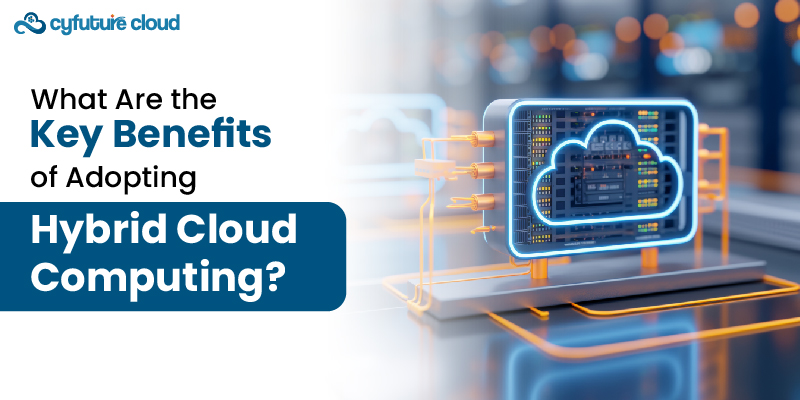
Hybrid cloud computing has become an effective strategy worldwide to provide efficient solutions to organizations’ IT architecture. This model implements both private and public clouds but is flexible enough to take advantage of the advantages of both without the disadvantages of the other.
This knowledge-based article will help the reader understand hybrid cloud computing strengths and why it is steadily gaining popularity among enterprises of various types and sizes.
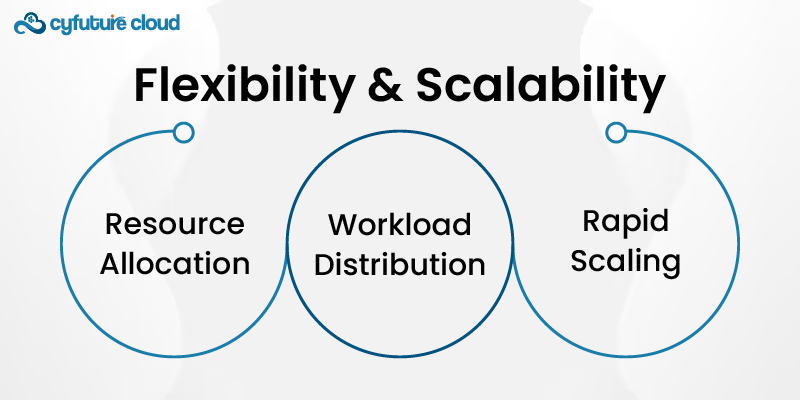
One of the primary advantages of hybrid cloud computing is its unparalleled flexibility and scalability. This benefit manifests in several ways:
1.1 Resource Allocation:
A hybrid cloud works by allowing organizations to use both private and public clouds but in a computed manner. This allows entities to face peak demand and load without constantly maintaining those levels of infrastructure.
1.2 Workload Distribution:
Companies can distribute workloads across different environments, placing sensitive or critical applications in the private cloud while utilizing the public cloud for less sensitive tasks or those requiring burst capacity.
1.3 Rapid Scaling:
With public cloud resources, the business can always use more resources during high demand and release resources during low demand while incurring nominal charges only for the consumed resources.
Hybrid cloud computing offers significant potential for cost savings:
2. 1 Capital Expenditure Reduction:
Organisations are, hence, in a position to avoid large investments in physical capital, such as computers and other physical structures that support cloud hosting services.
2. 2 Operational Efficiency:
The unique option to select the cheapest environment for a specific workload also leads to the most reasonable approach to informational technology expenses.
2. 3 Pay-as-You-Go Model:
Another consideration is that diverse parts of the hybrid model, especially those relying on the public cloud, normally have an OPEX pricing model, which means that companies pay only for the consumed resources.
Hybrid cloud architectures can significantly bolster an organization's security posture:
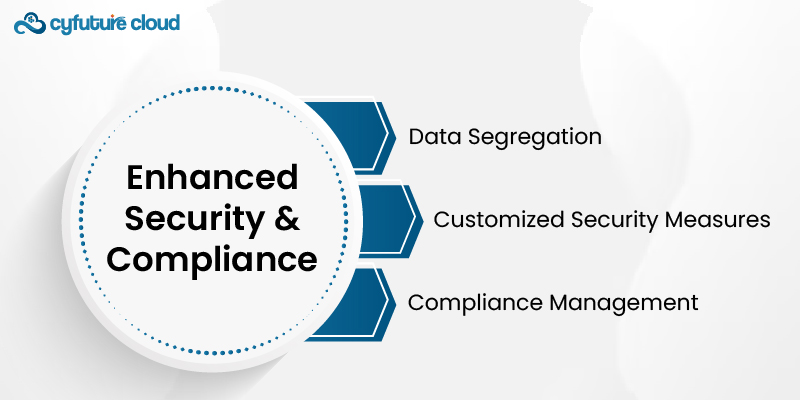
3.1 Data Segregation:
Sensitive data and critical applications can be kept on-premises or in a private cloud, while less sensitive information can be stored in the public cloud.
3.2 Customized Security Measures:
Organizations can implement tailored security protocols for different types of data and applications across various environments.
3.3 Compliance Management:
A hybrid cloud allows companies to meet specific compliance requirements by keeping regulated data in appropriate environments while still benefiting from cloud technologies.
Hybrid cloud solutions offer robust disaster recovery capabilities:
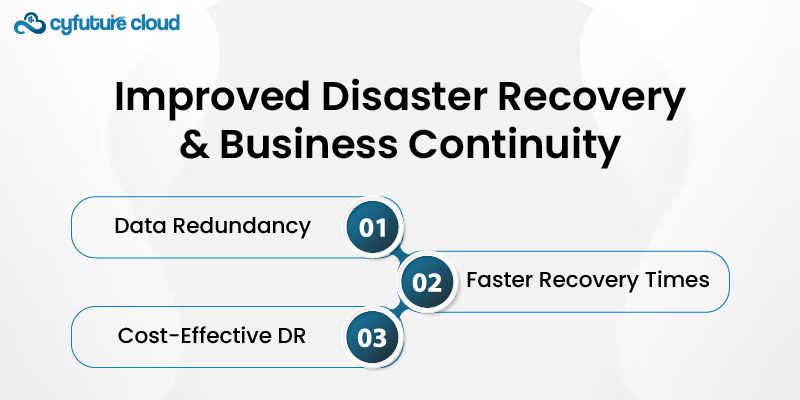
4.1 Data Redundancy:
Critical data can be replicated across both private and public cloud environments.
4.2 Faster Recovery Times:
Cloud-based disaster recovery solutions often provide quicker recovery times compared to traditional on-premises backup systems.
4.3 Cost-Effective DR:
Organizations can leverage public cloud resources for disaster recovery
Hybrid cloud environments foster innovation and agility within organizations:
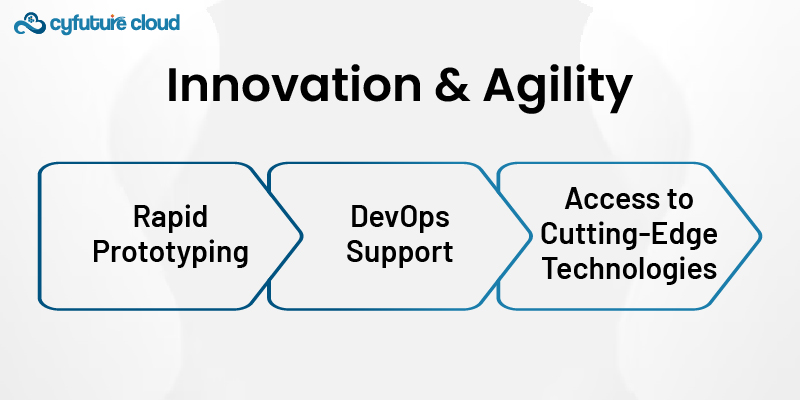
5. 1 Rapid Prototyping:
The development teams are provided with ample opportunities to spin up resources in the public cloud for testing and prototyping without disrupting production.
5. 2 DevOps Support:
The described hybrid cloud architectures are well scalable with DevOps approaches in terms of faster delivery and more frequent releases.
5. 3 Access to Cutting-Edge Technologies:3 Access to Cutting-Edge Technologies:
This is because public clouds provide the latest technologies, for instance, Artificial intelligence, and machine learning, amongst others, and at minimal cost to the organization.
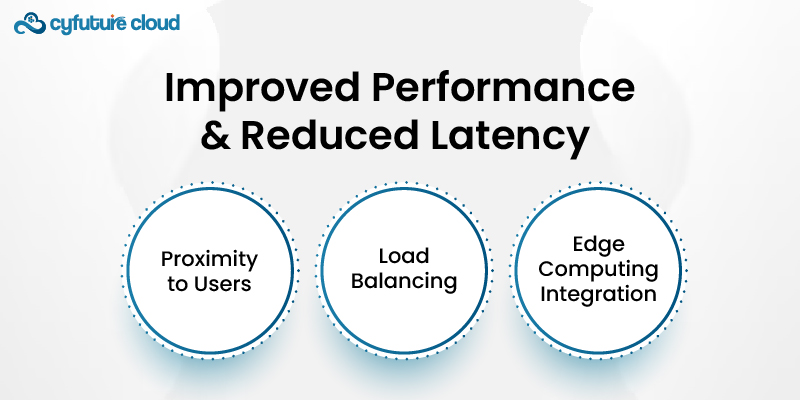
Hybrid cloud setups can enhance overall system performance:
6.1 Proximity to Users:
Organizations can keep frequently accessed data and applications closer to end-users, reducing latency and improving user experience.
6.2 Load Balancing:
Workloads can be distributed across environments to optimize performance and prevent any single server system from becoming overwhelmed.
6.3 Edge Computing Integration:
Hybrid cloud architectures can seamlessly incorporate edge computing for applications requiring real-time processing.
Hybrid cloud computing provides powerful data management capabilities:
7.1 Data Integration:
Organizations can integrate data from various sources across private and public clouds for comprehensive analytics.
7.2 Big Data Processing:
Leverage the scalability of public clouds for big data processing while keeping sensitive data secure in private environments.
7.3 Advanced Analytics Tools:
Access to cloud-based analytics tools allows organizations to derive deeper insights from their data.
Hybrid cloud can streamline IT operations:
8.1 Unified Management:
Many hybrid cloud solutions offer unified management interfaces, simplifying the oversight of diverse IT environments.
8.2 Automation:
Hybrid cloud platforms often include automation tools that can reduce manual tasks and improve operational efficiency.
8.3 Resource Optimization:
IT teams can more easily monitor and optimize resource usage across all environments.
Adopting hybrid cloud computing can provide a significant competitive edge:
9. 1 Faster Time-to-Market:
Because of the hybrid cloud's flexibility and capacity, new products and services can be generated more quickly and efficiently.
9. 2 Improved Customer Experience:
Based on these considerations, it can be stated that the improvement of applications’ performance and availability positively affects the customer satisfaction level.
9. 3 Adaptability:
A hybrid cloud model provides an opportunity for a fast reaction to the shifts in the market and customers’ demands.
It is now possible, as the business world has already witnessed the advantages of hybrid cloud computing that may create a difference in the overall efficiency, security, and profitability of the organization. These include improved flexibility and costs, increased security, and innovative capabilities, and hence hybrid cloud solutions create a solid foundation for today’s IT structures.
As the global business environment remains under some level of digital disruption, decisions around the hybrid cloud prove to be a potent and flexible weapon, enabling an organization to keep up pace with its rivals and shape the future of operation.

Let’s talk about the future, and make it happen!
By continuing to use and navigate this website, you are agreeing to the use of cookies.
Find out more


